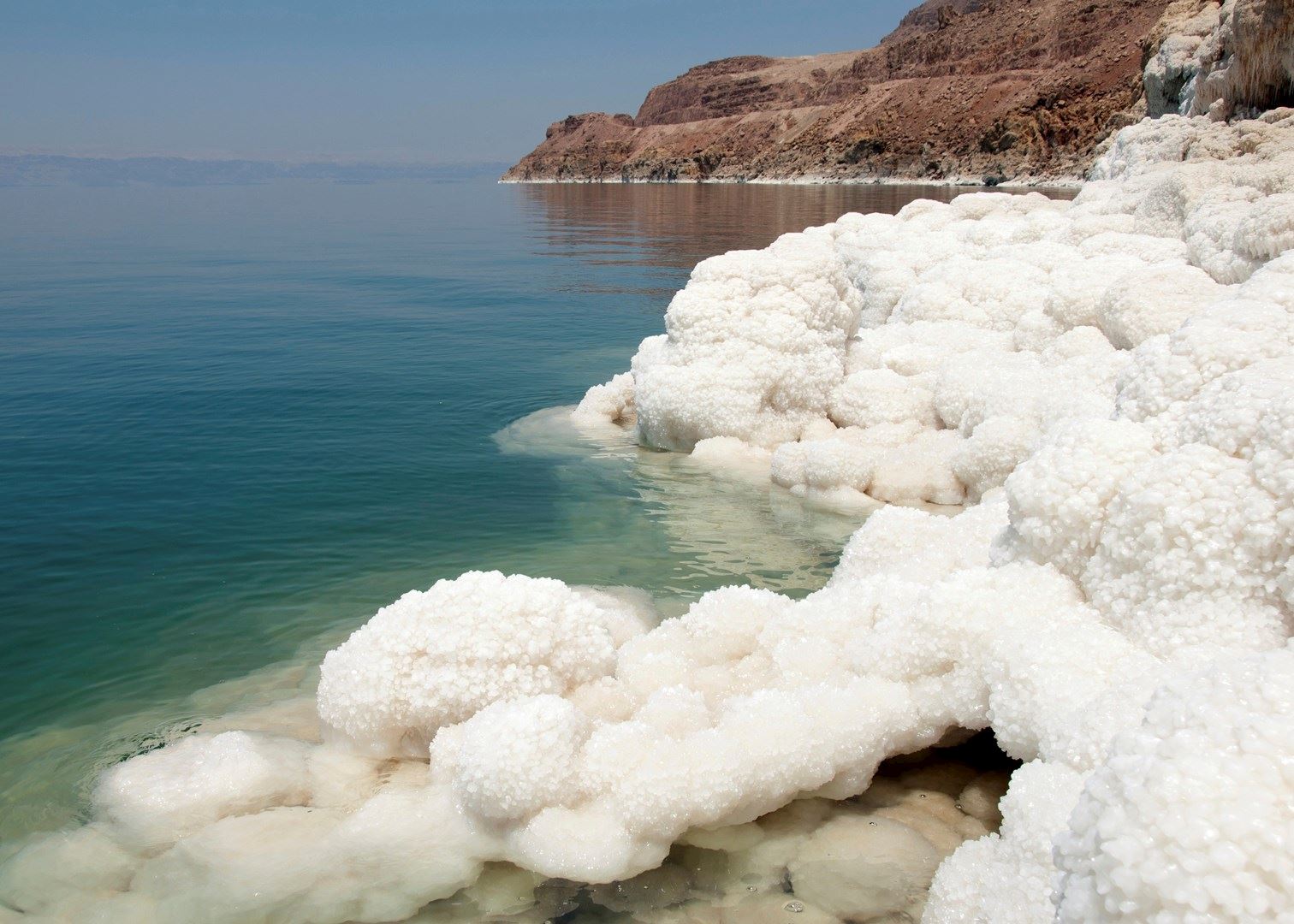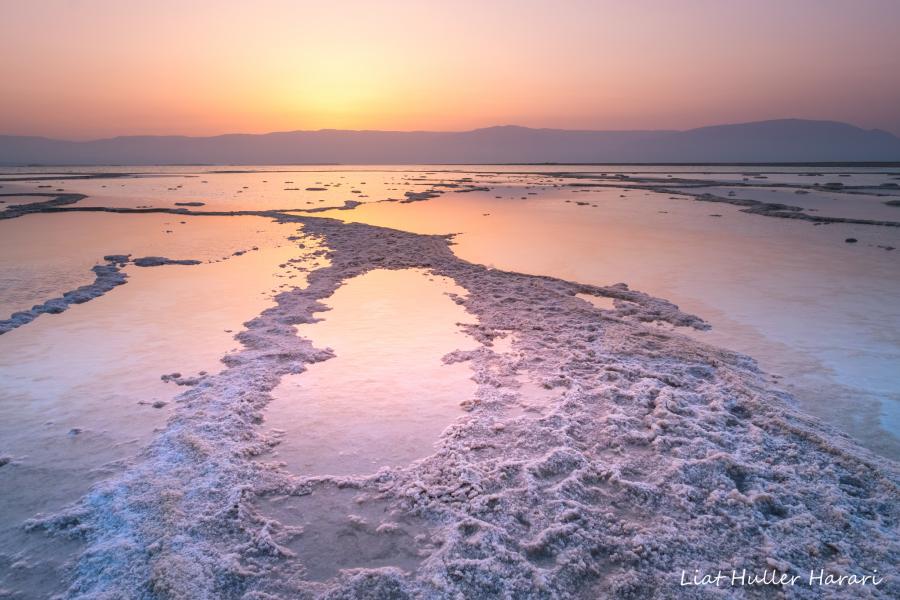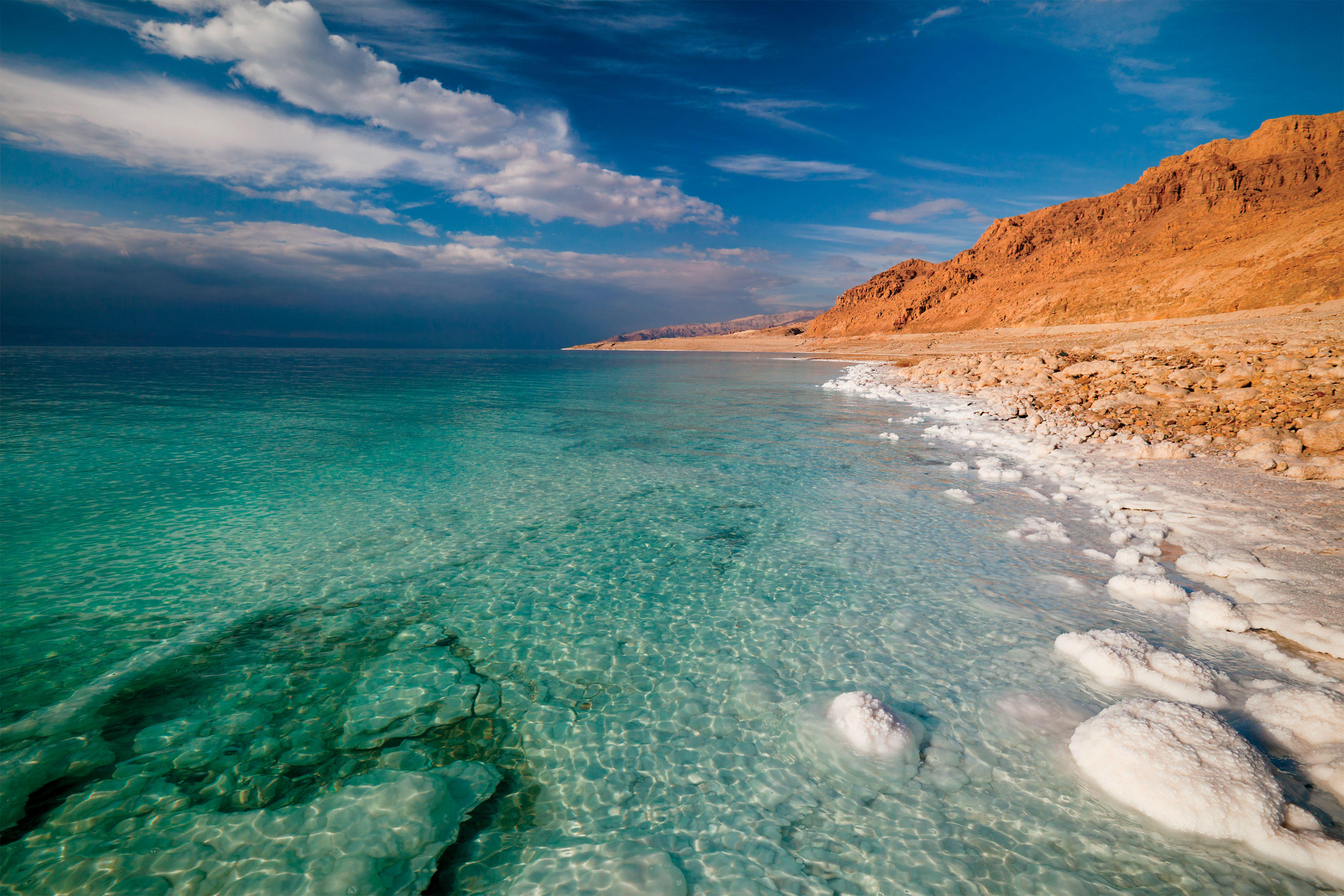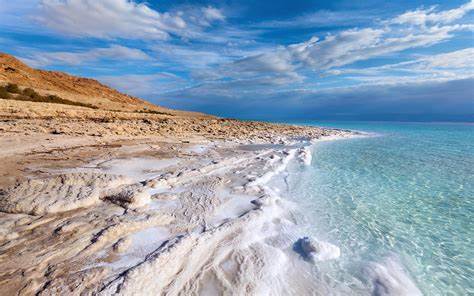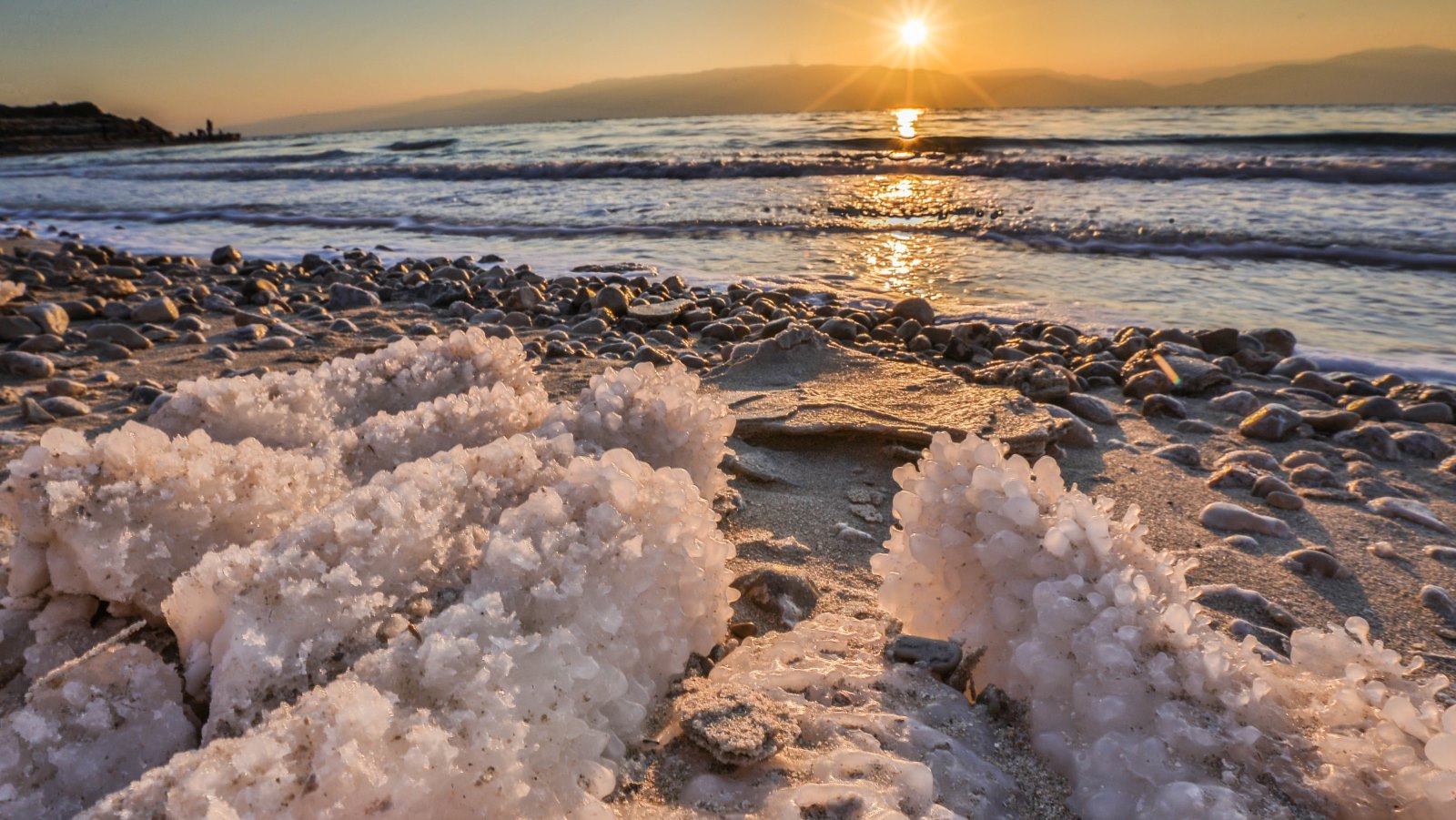Dead Sea
The Dead Sea (Arabic: اَلْبَحْر الْمَيِّت, romanized: al-Baḥr al-Mayyit, or اَلْبَحْر الْمَيْت,The Dead Sea, located at the lowest point on Earth's surface, is a salt lake bordered by Jordan to the east and Israel and Palestine to the west. Famous for its high salt concentration, which allows for effortless floating, and its mineral-rich mud, believed to have therapeutic properties, the Dead Sea attracts visitors from around the world for relaxation and wellness. Its unique ecosystem supports very few forms of life, hence the name "Dead" Sea. However, despite its harsh environment, the Dead Sea's mineral deposits and historical significance make it a remarkable natural wonder and a popular tourist destination. The Dead Sea is not only renowned for its high salt concentration but also for its hypersaline nature, containing about 34.2% salinity, making it one of the saltiest bodies of water on Earth. This extreme salinity prevents most forms of aquatic life from thriving in its waters, hence the name "Dead" Sea. However, it does host certain resilient microorganisms adapted to its harsh conditions. Moreover, the Dead Sea's mineral-rich mud is believed to offer various health benefits, attracting tourists seeking rejuvenation and relief from skin conditions like psoriasis. Additionally, the Dead Sea's shores hold significant historical and religious importance, with sites such as Masada, an ancient fortress, and the Qumran Caves, where the Dead Sea Scrolls were discovered, drawing archaeological and religious interest.
